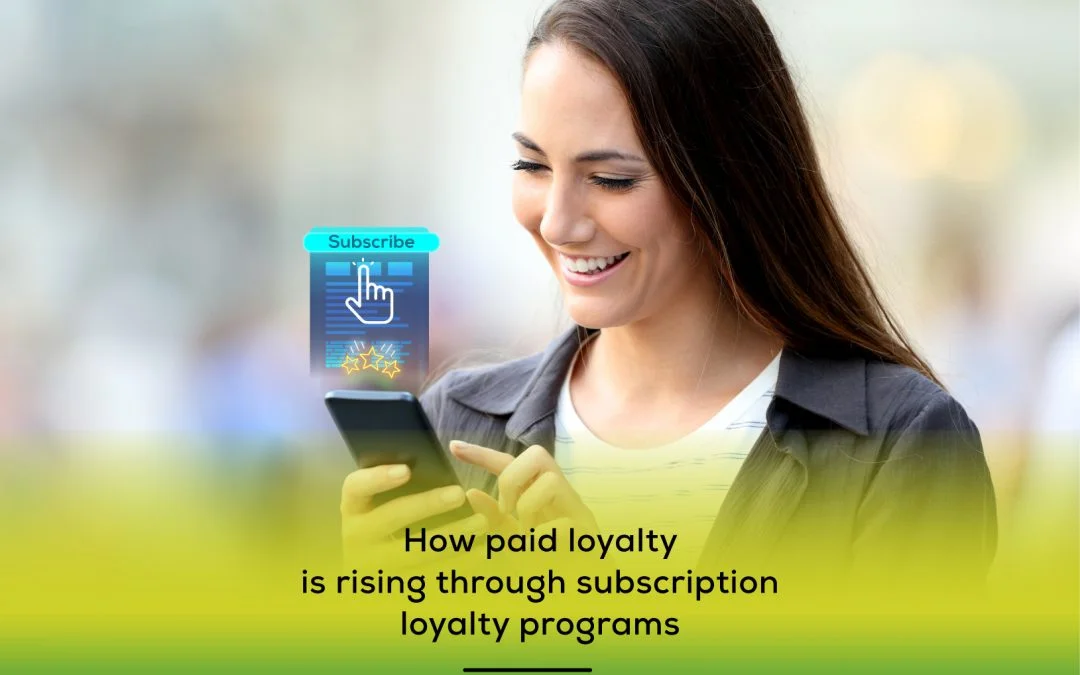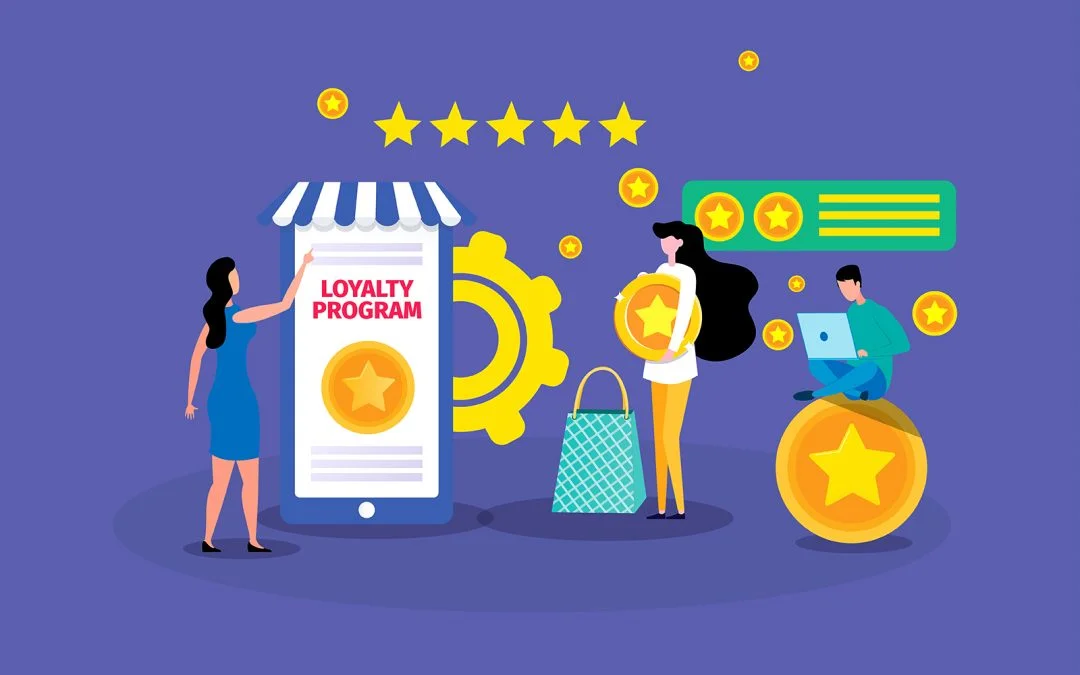- Design industry shaping loyalty programs
- Integrate easily and go live quicker
- Deliver hyper-personalized consumer experiences
Blue Rewards from Al Futtaim Group Shares Loyalty Success Stories and Evolution. Watch Podcast >
Capillary Announces 2nd Annual Captivate 2025 Summit: Transforming Loyalty Management with New AI Tech Read more >

The recent e-commerce boom ushered in a brand new era for customer experience. Whether through human-centric design, personalization engines, or omnichannel scalability, we witnessed brands adapting efficient, data-driven marketing practices. Of these, the most effective for both top-line and bottom-line growth was the implementation of subscription-based loyalty programs. By asking customers to pay a small fee to enroll in paid programs, while acquisition and retention metrics flourished, the ultimate win was engagement. Consequently, decision-makers – who once perceived loyalty programs as a cost center – now agree that subscription-based reward programs are nothing but revenue streams that function as fitting extensions to e-commerce enablement.
Paid loyalty programs are reward systems that ask customers to make some sort of upfront fee payment to then reap a whole host of benefits. This payment could either be one-time or recurring, but it promises to deliver more value to customers in the long term. Think of it as an investment plan that simply doesn’t fail and has absolutely no risks involved. Subscription-based loyalty programs might have started off as free before customers were nudged to upgrade to a fee-based premium model. Amazon Prime’s subscription-based business model is probably the most widely-known example of this evolution.
As long as brands begin with some incentives in the free program, it is estimated that 81% will shift to paying a fee as long as the benefits outweigh the cost. And better rewards ensure a higher subscription probability for greater ROI.
The primary advantage of paid loyalty programs is that it boosts customer activity in a way that simultaneously captures high-quality behavioral data. Moreover, the reciprocity between brands and customers grows stronger than ever. Brands are providing their most loyal customers with value that’s coming at a cost to the member. This generates new revenue while improving the overall quality of valued and committed customers. What could possibly be better than that?
The easiest way to understand how the paid loyalty model works is to think of the reward-on-investment principle. Every investor wants to make the most out of every buck invested. Customers want the same, except in the form of new benefits. As long as the initial fee is utilized to promote products that further incentivize the customer journey – it’s a win-win situation for both parties. Incentivized engagement leads to incentivized purchase and, ultimately, ensures a positive experience.
McKinsey has forecasted that members of paid loyalty programs are 60% more likely to spend on the brand after subscribing. This basically means that the value-based relationship has longevity and promises to sustain itself. Nurturing paid members is a massive opportunity for brands to learn more about their preferences and offer future product suggestions and benefits accordingly. This is, therefore, almost a foolproof method for high-end, high-purchase frequency customer retention. Personalization has never been more lucrative than customer-oriented paid loyalty programs. An important aspect is also offering both exclusive gifts and experiences to those customers who showcase loyalty consistently. For instance, in the travel and hospitality sector, we know that premium customers get rewarded with free upgrades, more miles, and business class treatment even if they are flying economy. The fact remains that paid loyalty works, and almost all other B2C sectors can profit from it. Let’s now look at the brands that have innovated the most in this direction.
In a stunning turn of events after the introduction of their ‘insider’ program, Sephora – a leading beauty brand – achieved 80% of its sales from paid-loyalty customers. Today, they have over 25 million such subscribers who get to choose how they use their reward points. They can redeem points for almost anything that Sephora offers from gift cards to free cosmetics as well as influencer meet and greet events. Without reducing the cost of its products, this rewarding system ensures that customers have a flexible and open relationship with the brand – incentivizing them to pay more for every purchase.
It’s almost impossible to not talk about the origins of Prime when it comes to e-commerce. The biggest frontrunner in this space recognized the value of paid loyalty early on in their journey when they realized that customers need to feel like they earned their quicker shipping at no cost. Or, their favorite films and TV shows at a low annual cost that includes a whole host of fulfillment benefits. This ingenious strategy made the albeit growing business flourishes faster than expected, with sales skyrocketing through loyal, paid Prime subscribers globally. The ‘two-day’ shipping bait doesn’t even require continuous fees, but a one-time payment that does the trick. Thus, instead of pushing customers for more purchases, the ease of quick delivery and added services like Prime Video just enhances the privilege of ordering through the platform in comparison to others. This is, by far, the most seamless way of providing a positive experience that’s simply more appealing than any other.
It is no surprise that Starbucks has managed to sustain its high pricing strategy for its products mainly through rewards. Their successful ‘Starbucks Rewards’ app is based on a low fee, high rewards model that ensures revisits, even if for the free coffee that was easily granted after only a few purchases. It makes sure that the customer feels appeased on their birthday, moreover, with another free beverage – building a higher customer lifetime value overall. These free drinks bring the negligible cost to the company at a very high ROI.
In the gamer’s world, points and rewards are all the validation they need. Gamestop escalated their previous loyalty program called Edge to a premium or paid one just to gratify gamers one step further. Through a host of benefits during and after games that one can pay for upfront, Gamestop acquired a huge set of additional customers who kept returning for more. This rewarding mechanism called PowerUp makes customers feel more empowered while playing their favorite games, improving their experience significantly.
It is evident that as customer interactions evolve with technology, the rewards ecosystem continues to evolve simultaneously. The more customer data brands can gather through paid loyalty programs the better. It will enable them to have an edge over competitors when it comes to offering personalized rewards through a paid subscription that, in turn, offer customers a whole host of benefits for the long haul. Ultimately, the prospect of reciprocity signals better customer lifetime value. To better understand the efficacy of subscription loyalty programs, book a demo with our experts today.

December 17, 2022 | 4 Min Read
With smartphones accounting for 84% of the 2019 holiday seas

October 26, 2024 | 4 Min Read
Retail personalization strategies enhance customer engagemen

August 25, 2019 | 4 Min Read
Over the last few years, rapid digitization has made a signi